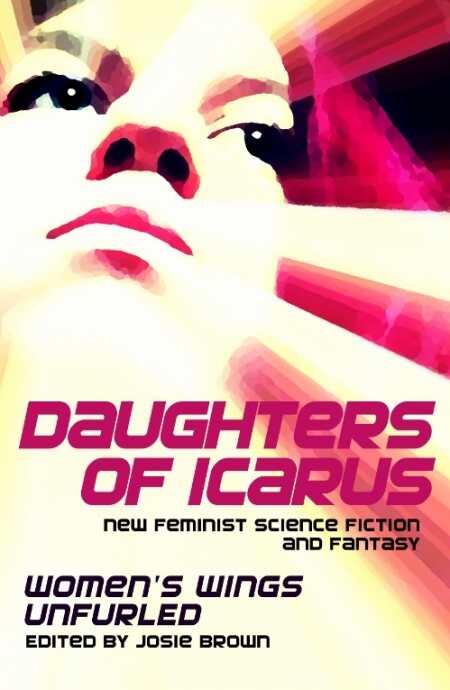Daughters of Icarus
New Feminist Science Fiction and Fantasy
The challenge of putting together a short-story anthology is giving readers enough variety of styles and voices while still finding stories that fit comfortably with one another. Daughters of Icarusis a diverse collection of speculative fiction, with some stories that fit squarely into fantasy or science fiction and others that effectively blur those lines. The broad common theme that holds the collection together is the notion of a feminist approach to the genres. Some selections achieve that just through a female protagonist, while others raise serious questions about gender roles in their futuristic or otherworldly settings.
Daughters of Icarus contains twenty-eight stories within those wide parameters, and there’s a range of topics, quality, and writing styles, with something for most everyone. A few of the best stories in the book make instant impressions and demonstrate the collection’s variety. For example, A.J. Fitzwater’s excellent “Me Myself I” features a protagonist who comes across a coffee shop named after her and learns that it’s a place where she can interact with all the possible outcomes of her life. She can even make return trips to “meet” these different versions and contemplate the results of her choices.
In “Two Rivers,” by Therese Arkenberg, researchers travel to a planet to study people whose unusual characteristics include a third gender and a complicated hierarchy. The narrator struggles with how the researchers’ interactions with the individuals they are studying, starting with their first diplomatic outreach, play a role in a growing and serious conflict between the planet’s civilizations. That thoughtful conflict and Arkenberg’s rendering of a strange-but-familiar world make this story stand out.
“Universal Underground,” by Summer Hanford, adopts a straightforward mystery premise—a secretary longs for promotion until she begins to question why the people who are promoted disappear; she begins to investigate—and moves into a pure sci-fi second act. Janett L. Grady’s “Graffiti On a Wall” is a story that could take place in an everyday, modern setting—an argument between a married couple with trust issues—adds some futuristic color to the proceedings, and ends with an effective twist.
These and several other strong pieces offer memorable takes on the notion of feminism in speculative fiction, and the average quality of the stories in the book is quite high. In Daughters of Icarus, Josie Brown has done a nice job of putting together a collection that provides something for most readers of the sci-fi or fantasy genres to enjoy.
Reviewed by
Jeff Fleischer
Disclosure: This article is not an endorsement, but a review. The publisher of this book provided free copies of the book and paid a small fee to have their book reviewed by a professional reviewer. Foreword Reviews and Clarion Reviews make no guarantee that the publisher will receive a positive review. Foreword Magazine, Inc. is disclosing this in accordance with the Federal Trade Commission’s 16 CFR, Part 255.

